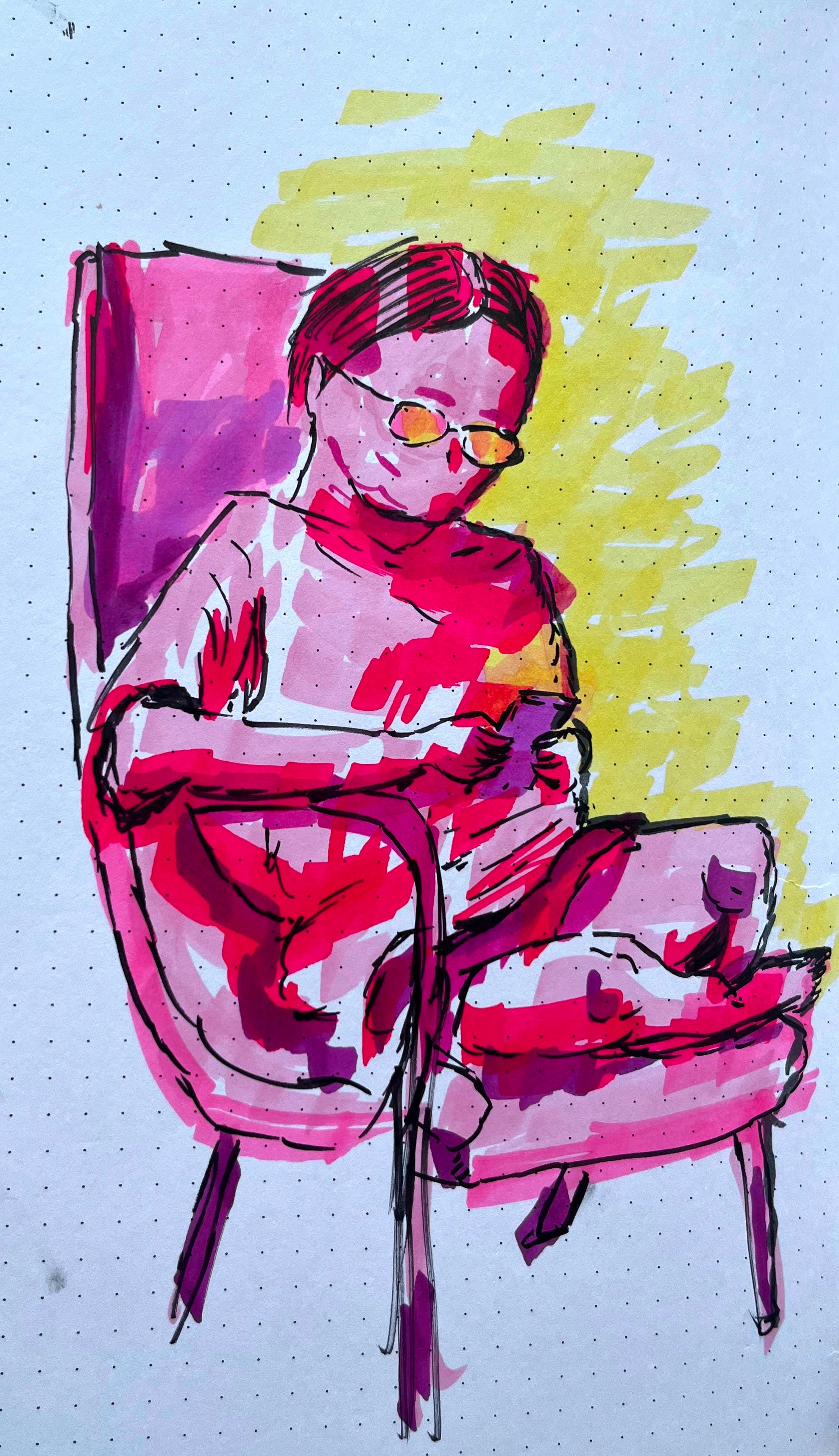Hey hey,
This week, and I got together to mind-meld over coffee - we talked mycotoxins, self-interest within orgs and…strategy. What even is “strategy”? There is so much ink - and fluff, mostly fluff - spilled on this topic it is jarring to define it in the simplest of terms. Too often strategy exercises are just glorified summaries of what component teams are doing (happened at Google all the time). And there’s this false dichotomy between capital S “Strategy” and execution - as if one is worth anything without the other. And in some cases even this good “strategy” never really makes it beyond a well designed slide deck. No matter how you go about it - and we both have very different ways in - it comes down to structuring choices and then finding the right stories for those choices to propagate - all of it leads to figuring out what to do next. But this is hard to do. And a lot of teams and businesses would rather not do hard things.
And here’s this week’s art-as-a-habit-not-just-a-hobby. Trying my hand at brush pens.

Here are the finds of the week:
- LAZY ROBOTS When we walk down the street, we know what we need to pay attention to—passing cars, potential dangers, obstacles in our way—and what we don’t, like pedestrians walking in the distance. Robots, on the other hand, treat all the information they receive about their surroundings with equal importance. What if there’s a way to cut that down by teaching robots what they should prioritize and what they can safely ignore?
- TEEN-AGERS Covid lockdowns prematurely aged girls’ brains more than boys’, study suggests. MRI scans found girls’ brains appeared 4.2 years older than expected, compared with 1.4 years for boys. “It’s important to recognise that although the pandemic is largely over, the effects of the stress of the pandemic are still there for children and adolescents.”
- PERUVIAN TAKEOVER In ten short years, Peru has taken over the global blueberry scene. Such a cool story. Outside of North America, the main producer and exporter was Chile, which harvested around 76,000 tonnes in December. So there was a big gap from September to November that - at the time - was only very partially being filled by 15,000 tonnes of blueberries from Argentina and Uruguay combined. Due to the historic global scarcity at that time of the year, producers in those two countries could get $15 per kilo, compared with $3 to $4 for US blueberries in August. So Peruvian blueberry farmers decided - successfully - to also focus production on those three months.
- HAND LINGO Using hand gestures might feel like an intuitive way to communicate across language barriers, but their meaning can change, and there are few universal signs that everyone agrees on. If something as universal as approval, disapproval and pointing can be different across cultures, is there anything that has the same meaning to everyone? And would those gestures stand the test of time?
- WHY SO TALL? World's second tallest tower spurs debate about who needs it. Building tall landmarks had long been a source of prestige and national pride for Malaysia’s leaders, but the recent addition of another has the current prime minister suggesting there’s already enough.
